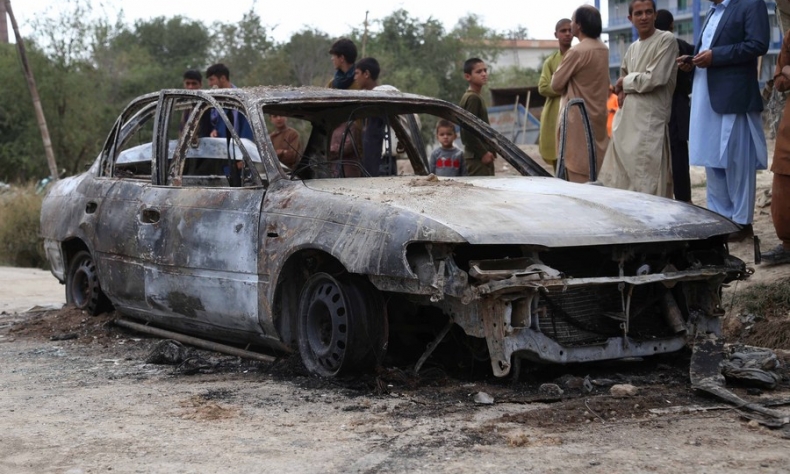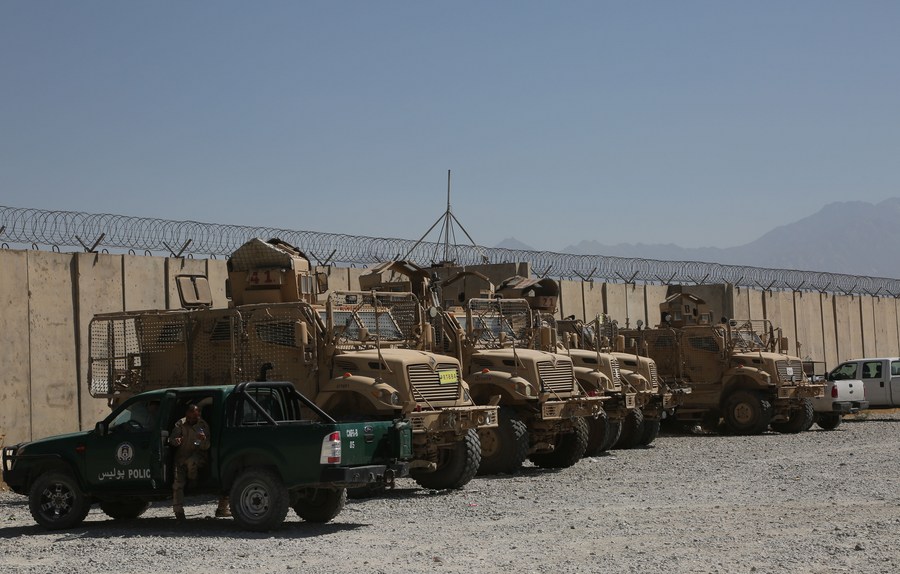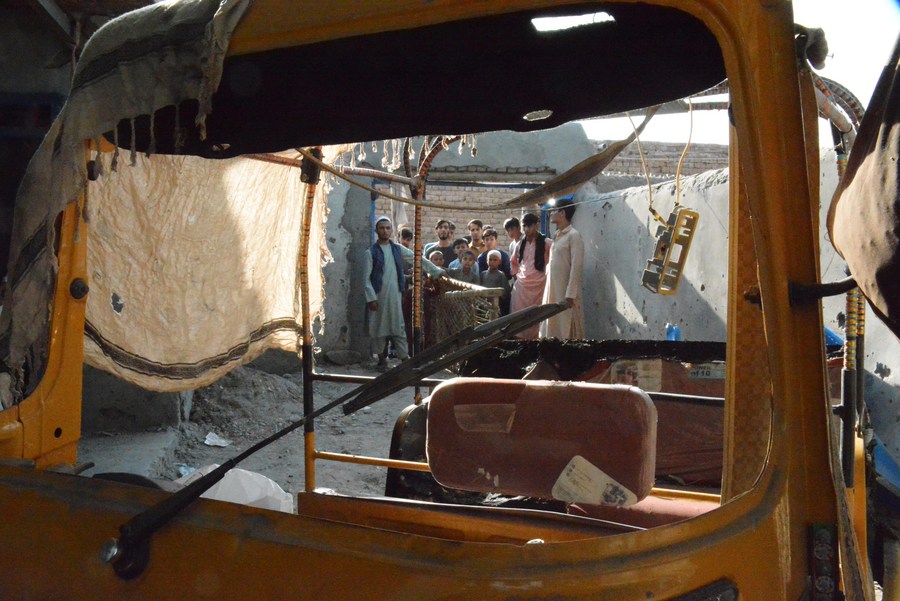US Fails to Root Out Terrorism Under International Law

When the U.S. implemented its counter-terrorism measures, it carried out indiscriminate strikes and caused civilian casualties far beyond their stated scope.
On Aug. 30, American troops pulled out of Afghanistan after 20 years of deployment. Since the war began in Afghanistan after the 9/11 attacks, the U.S. military has established permanent military bases and maintained a long-term military presence in the country to combat terrorism which posed a threat to international peace and security.
Whether the U.S.’s counter-terrorism measures were effective remains a contested issue under international law. The United States has spent approximately $5.8 trillion in the aftermath of the 9/11 attacks. Adam Z. Rose from University of Southern California and S. Brock Blomberg from Ursinus College have argued that subsequent counter-terrorist initiatives at home and abroad were more costly than the direct damage caused by the 9/11 attacks. In addition, the recent U.S. withdrawal might reflect the fact that the country’s counter-terrorism measures did not promptly address or root out the crimes against humanity in the region under international law.

U.S. counter-terrorism measures have their own limitations. No matter the huge amount of money invested or the troop withdrawal, the U.S. government has not only been unable to achieve global stability but has actually undermined regional stability. Its counter-terrorism actions have different standards which differ domestically and abroad; in other words, they display double standards. On the one hand, with its ability to exert political, military, and economic power, the U.S. government uses counter-terrorism as a pretext to promote global goods such as international peace and security. On the other hand, the U.S. government has limited its counter-terrorism measures to specific regions, countries, ethnicities, and religions. Therefore, it regards counter-terrorism as a tool to implement regional power politics. In the name of the self-appointed police of the world, which authorizes the dispatches of military forces abroad to intervene in internal affairs of other countries, the U.S. has fanned regional flames in an attempt to establish an international order dominated by the West.
The U.S. then prefers to use armed forces to settle regional peace, which is contrary to the principles that prohibit the use of force and acts of aggression. The U.S. has its natural geographic advantage and military strength. With coastlines on the Atlantic and Pacific oceans, the U.S. is protected from military attacks as well as land-based aggression. Besides, the U.S. continues to modernize its military forces through the procurement of advanced technology and weaponry platforms. Its unique geographic advantage and military might considerably outweigh that of its neighbors, allowing it to confront terrorism through paramilitary means. Because terrorist crime is not considered a war between countries under international law, it is improper for the United States to fight terrorist groups in the manner of war, which has a detrimental impact on human rights. This implies that without the authorization of the United Nations Security Council, the U.S. is not authorized to use coercive actions against offending states.

However, even if the military forces inadvertently injure civilians, the U.S. will continue to view the war as necessary, which is hardly a desirable condition of affairs. During a conflict, democracy may take a battering. It acknowledges that successful counter-terrorism measures and human rights protection are not mutually exclusive aims but rather complementary and mutually reinforcing. That is, the U.S.’s unrestrained use of armed force against terrorism is a kind of indiscriminate slaughter of innocent civilians in the target state under the pretense of justice, which should be prohibited under international criminal law. Thus, terrorism cannot be destroyed just through armed power, and terrorism will never be abolished if non-traditional security concerns such as poverty, drug proliferation, and refugee crises are not addressed.
It is worth noting that U.S. actions should be considered a breach of sovereign equality of nations and non-interference in each other’s domestic affairs. However, by exploiting so-called humanitarian issues as justification for interfering in Afghan politics, the United States or other nations have the authority to interfere in Afghanistan without the permission of the United Nations Security Council or Afghanistan. Although the opinion is divided on humanitarian intervention and its legality, this theory only serves to justify aggression against the target country and plans for hegemony in the region. Afghanistan, as a sovereign country, has the national power to fight its own terrorist forces independently. Armed forces still exist as a result of the United States’ exceptional actions in Afghanistan. Furthermore, the U.S. attacked and sent soldiers to occupy Afghanistan, infringing on its right to self-determination.
Meanwhile, the U.S.’s frequent use of drones as part of its so-called counter-terrorism measures inflicted mass casualties. Since human rights is a matter within the sovereignty of a country, only when there are large-scale violations of basic human rights, such as genocide and serious humanitarian disasters, can human rights be a matter of international jurisdiction. Thus, the result of the U.S.’s use of force was that the U.S. itself ended up violating the very norms, including human rights and non-intervention, which it professes to uphold.

The U.S. counter-terrorism measures do not conform to the principles of proportionality and necessity under international law, which place limitations on intervention. Even when the armed forces claim to be acting on account of permissible measures such as counter-terrorism, the question arises as to what extent the force itself is permissible under contemporary international law.
For one thing, when the U.S. implemented its counter-terrorism measures, it carried out indiscriminate strikes and caused civilian casualties far beyond their stated scope. For another, most U.S. scholars and politicians appear to regard terrorists as a source of danger, or enemies who cause subversive damage to human civilization, violate social norms, and principles, and disrupt the fundamental order on which society relies, depriving them of their human rights and freedoms as defined by German jurist Günther Jakobs’ “On the Theory of Enemy Criminal Law.” Furthermore, the employment of high-intensity unilateral economic or financial actions, usually referred to as U.S. unilateral sanctions, has broadened the scope of counter-terrorism operations.
This article is co-written by Ye Ziwen, Ph.D. candidate, International Law School, East China University of Political Science and Law, and Song Lijue, associate professor, School of Foreign Studies, East China University of Political Science and Law.
 Facebook
Facebook
 Twitter
Twitter
 Linkedin
Linkedin
 Google +
Google +










